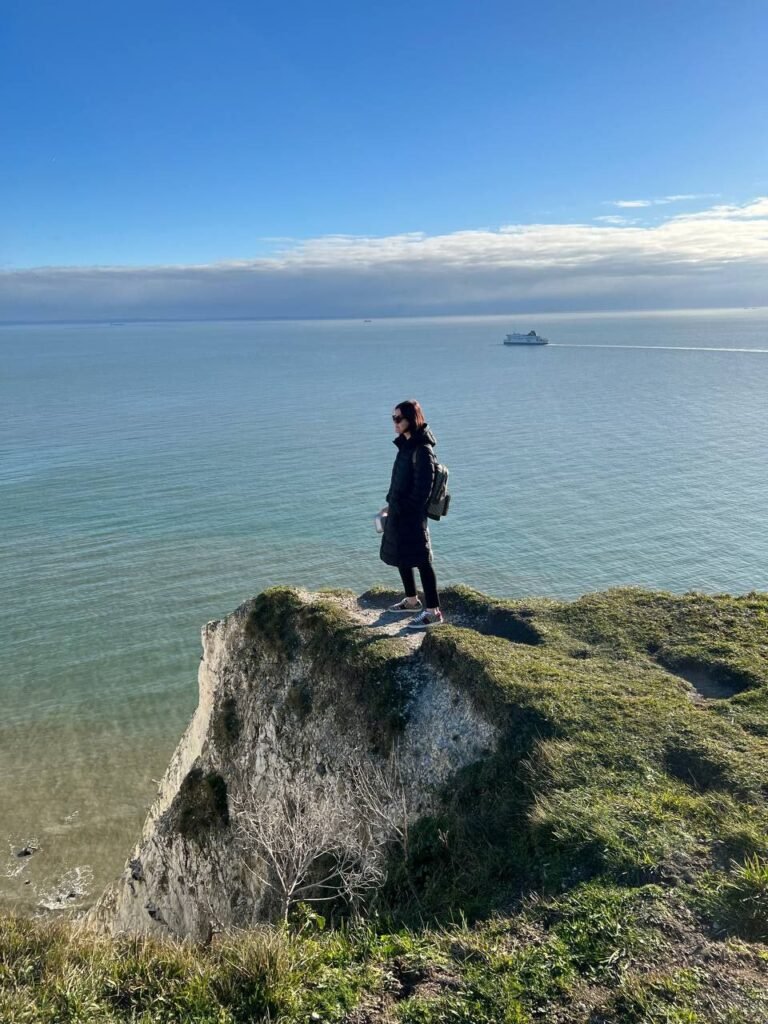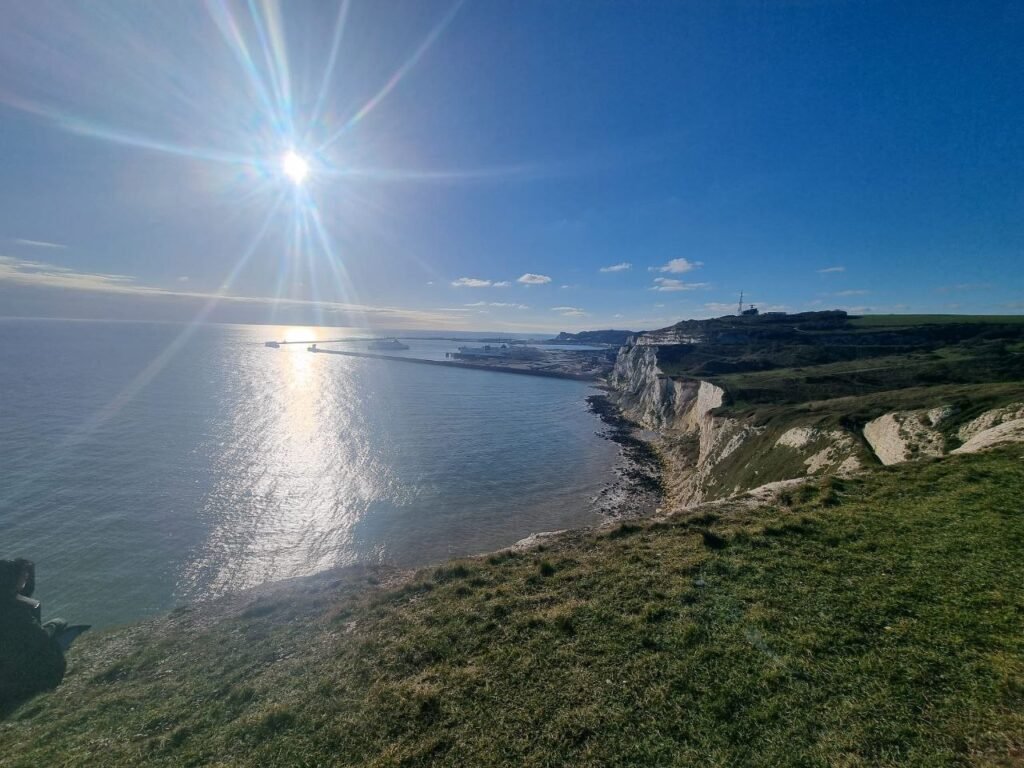Winter break has afforded me the luxury of brief escapes from London’s familiar rhythms. Two contrasting journeys—one to Paris’s urban labyrinth, another to Dover’s stark coastal cliffs—have provided welcome perspective as I enter the final months of my master’s program at Imperial College.
Paris in January possesses a particular melancholy beauty. The tourist crowds have thinned, leaving space for the city to reveal itself more honestly. At the Musée d’Orsay, I spent hours observing how the Impressionists captured light in ways that seem impossible—transforming fleeting sensory impressions into something permanent. Standing before Monet’s water lilies, I found myself thinking about the relationship between observation and creation, how attention itself becomes a creative act.

The Pompidou Center offered a different kind of inspiration. An exhibition on contemporary Russian artists in exile resonated deeply with my own sense of cultural liminality. One installation featured a room where fragments of text in multiple languages were projected onto translucent screens, creating layers of meaning that shifted as viewers moved through the space. The effect was remarkably similar to what I’m attempting in my current writing—the superimposition of different realities, the permeable boundaries between worlds.
An unexpected highlight of my Paris visit was attending Livre Paris, the international book fair. Wandering through the pavilions, I was struck by the diversity of voices and perspectives represented—authors from every corner of the globe seeking connections, translations, new audiences for their work. At one panel discussion about cross-cultural publishing, I found myself in conversation with Marina Vicente Moreno, director of Editorial Mankell, a Spanish publishing house that specializes in discovering unique literary voices. Her passion for connecting international authors with Spanish-speaking readers was infectious, and our discussion about the challenges of translating psychological narratives across linguistic boundaries proved unexpectedly illuminating for my own work.
Marina’s insights into how different cultural contexts shape reader expectations made me reconsider certain aspects of my current project. “Every language carries its own emotional architecture,” she told me over coffee between sessions. “As writers, we’re not just translating words—we’re building bridges between entirely different ways of feeling and understanding the world.” That conversation has stayed with me, adding new layers to how I think about the universality of human experience versus the specificity of cultural expression.
Dover, by contrast, offered elemental simplicity. The white cliffs rising from the churning Channel, the ancient castle perched like a sentinel above the harbor. The landscape feels mythic, timeless—England at its most essential. I walked for hours along the coastal path, the wind so fierce it seemed to scour away all extraneous thought. In that clarifying chill, certain decisions began to crystallize.

As my master’s program approaches its conclusion, the inevitable question looms larger: what comes next? The conventional path would lead to a marketing position, perhaps at one of the firms where I’ve interned. There’s comfort in that trajectory—financial stability, professional recognition, the satisfaction of applying what I’ve learned. Yet I find myself increasingly drawn toward a riskier alternative: committing fully to writing, embracing the uncertainty of creative life.
During my Paris visit, I had coffee with Eloise, a former UCL classmate who now works as a literary translator. She described her freelance existence with refreshing honesty—the financial precarity, the irregular hours, but also the profound freedom to shape one’s own days according to creative rhythms rather than corporate calendars. “The question isn’t whether you can afford to write full-time,” she told me, “but whether you can afford not to.”
That phrase has echoed in my mind during these January days. What is the true cost of setting aside one’s primary passion for the sake of security? What compromises do we make with ourselves when we postpone the work that feels most essential?
I don’t have definitive answers yet. Perhaps there’s a middle path—part-time consulting work that would provide financial ballast while leaving space for serious writing. Or perhaps the binary choice—office or complete creative freedom—is itself a false dichotomy, an oversimplification of how creative lives are actually constructed in the contemporary world.
What seems increasingly clear, however, is that the stories I need to tell won’t allow themselves to be indefinitely deferred. They press more urgently now, demanding attention, development, completion. The novel I’ve been conceptualizing—a near-future narrative set in a city fractured by mysterious rifts—has begun to occupy my thoughts even during marketing lectures and case study discussions.
As I stood on Dover’s cliffs, watching ferries crawl across the horizon toward the Continent, I felt a peculiar sense of standing at a threshold. Behind me, the familiar landscape of academic requirements and professional expectations; ahead, the vast unmarked territory of possibility. Both landscapes have their beauty, their challenges, their rewards.

The journey back to London was quiet, contemplative. The train passed through Kent’s winter fields, bare trees etched against pale sky. I used the time to sketch ideas for new characters, plot developments, settings. By the time we reached St. Pancras, my notebook held several pages of fresh material, and with it, perhaps, the beginnings of an answer.
“For what it’s worth: it’s never too late or, in my case, too early to be whoever you want to be.” (F. Scott Fitzgerald’s words accompanied me on these winter journeys)